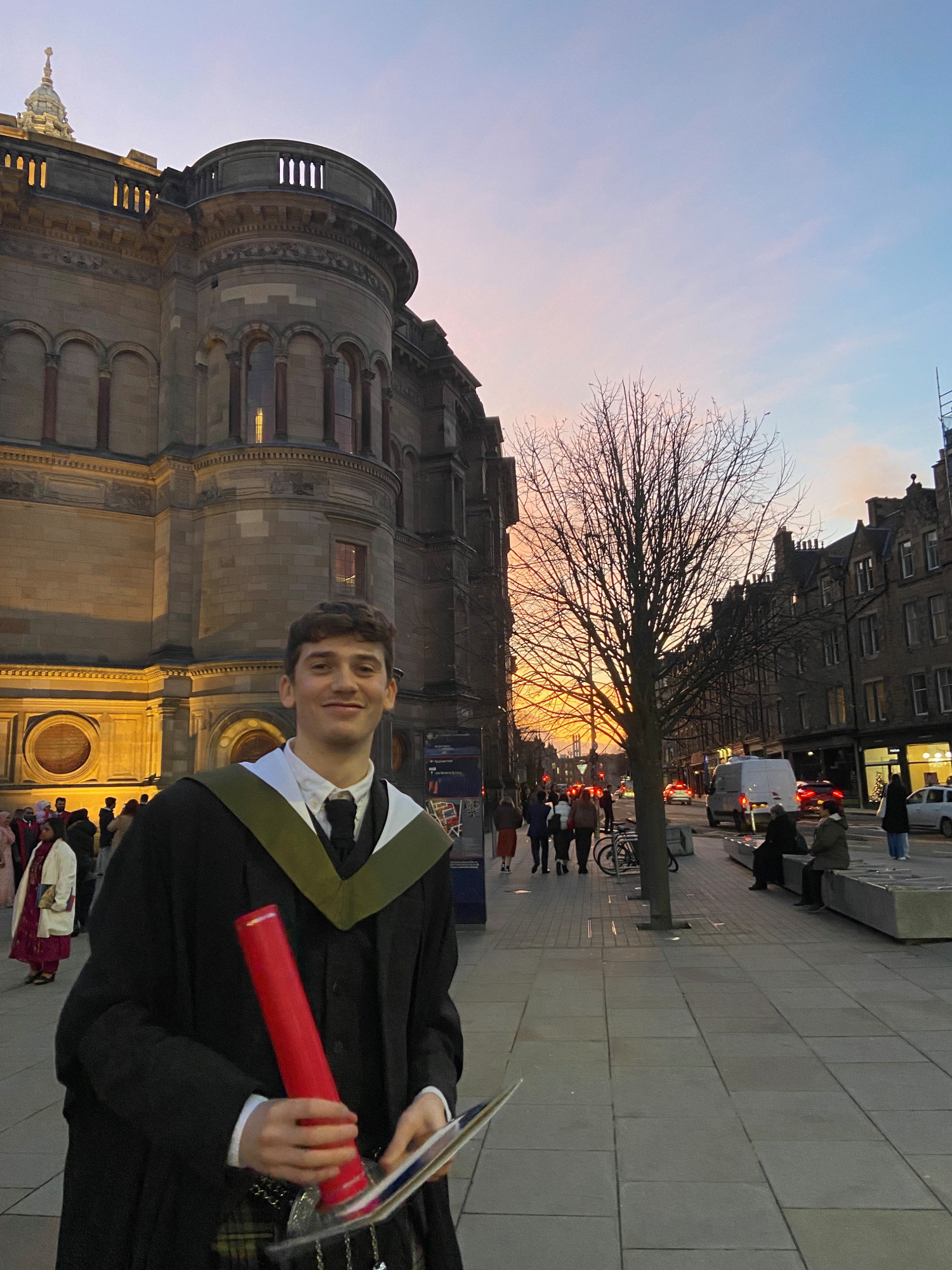Craig Edwards
Why did you decide to study at the University of Edinburgh
During my undergraduate degree, I took part in a Technical Studentship at CERN, where I became very interested in particle physics. After having an amazing time away, I naturally wanted to go further in this field, so once I graduated, I looked for particle physics-focused masters and applied for the MSc in Particle and Nuclear Physics at The University of Edinburgh. I was offered a place and also awarded the School of Physics and Astronomy Higgs Scholarship, which helped a lot during my studies. The MSc programme was the ideal fit for me; I was interested in a lot of the courses the MSc offered, and it was not far from Glasgow, where I studied as an undergraduate. Edinburgh is a prestigious university and a great city, I really enjoyed living there for a year.
Tell us about your career journey
I’ve always enjoyed coding in my spare time. During my MSc at the University of Edinburgh, I took data analysis and machine learning courses, which significantly deepened my knowledge. I also had the opportunity to focus my master thesis on coding, where I was given access to high-end data and the freedom to take the research wherever I wanted it to go.
In my spare time, I took part in a football hackathon, which I ended up winning (thanks to a great team!). For winning, I was able to present at Manchester City and then at Wembley Stadium later in the year.
Throughout my MSc, I became interested in a career as a data scientist which was not something I was planning prior to starting. After completing my thesis, I got a job at the University of Dundee as a research data scientist, where I was investigating how machine learning can be used to predict future dementia using MRI scans. I doubt I would have gotten the job without the experience I acquired from the MSc.
During that time, someone came across the project I’d worked on for the football hackathon and contacted me on LinkedIn, asking if I was interested in applying for a job at a company called Sport Republic.
They hold majority ownership in three football clubs across England, Turkey, and France. At Sport Republic I could combine my two passions: football and data. I wasn’t going to say no to my dream job!
At Sport Republic, I work in a small data science team of four people, where we act as the ‘data teams’ for the three clubs. We work closely with departments across the clubs to support a wide range of tasks, including — but not limited to — helping analysts prepare for upcoming matches and building apps to aid scouts in identifying players to sign. It’s a fully remote job which means I get to live in Glasgow.
What did you gain from your time at the University? Were there any experiences during your time at University which particularly helped prepare you for life after graduation?
The MSc taught me how to do research, take my own initiative, and assimilate information fast. I was taking many modules per semester so there was a lot to take in. This really set me up for my roles at the University of Dundee and Sport Republic, where in both cases I’ve had to jump in at the deep end — learning new programming languages and adapting quickly.
Do you have a favourite memory of your time in Edinburgh?
The end of year presentation! Once students complete their summer dissertation, they get to present their work in front of the cohort and the professors. After working hard all summer, it was nice to see everyone’s work and have a moment to celebrate with each other.
What do you wish you had known as a student?
As a student I was worried about learning the exact line of code and memorising it all. I wish I had known that understanding what you can do with a code is far more important than learning the code itself. There are a lot of online resources available to help get the finer details of the code itself right, but this all becomes easier if you spend some time trying to understand the larger picture.
I also wish I had known that there are a lot of opportunities in industry for students who complete the MSc programme. Many of my peers moved on to do PhD’s, which is something I was also considering. However, looking back, I was not ready to commit to four more years of research at that moment. While I believe there is always time to go back to academia and apply for a PhD in the future, for the time being, I am happy things took a different direction for me.

